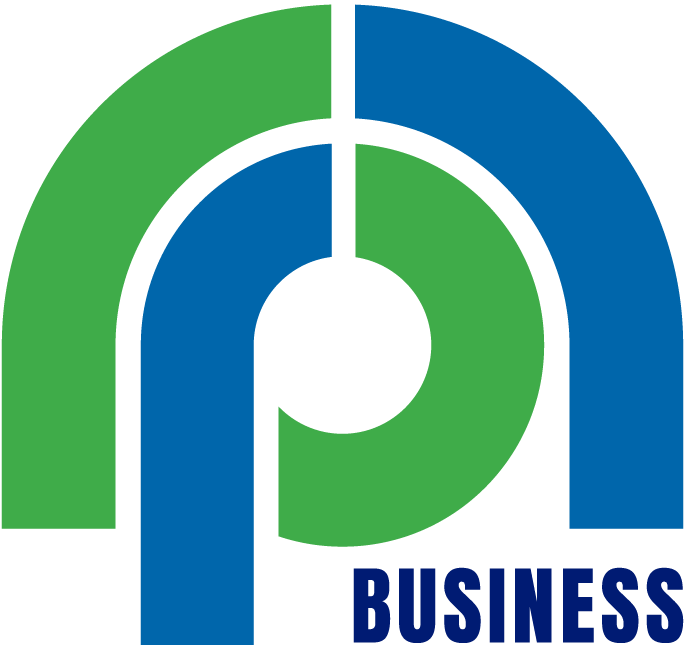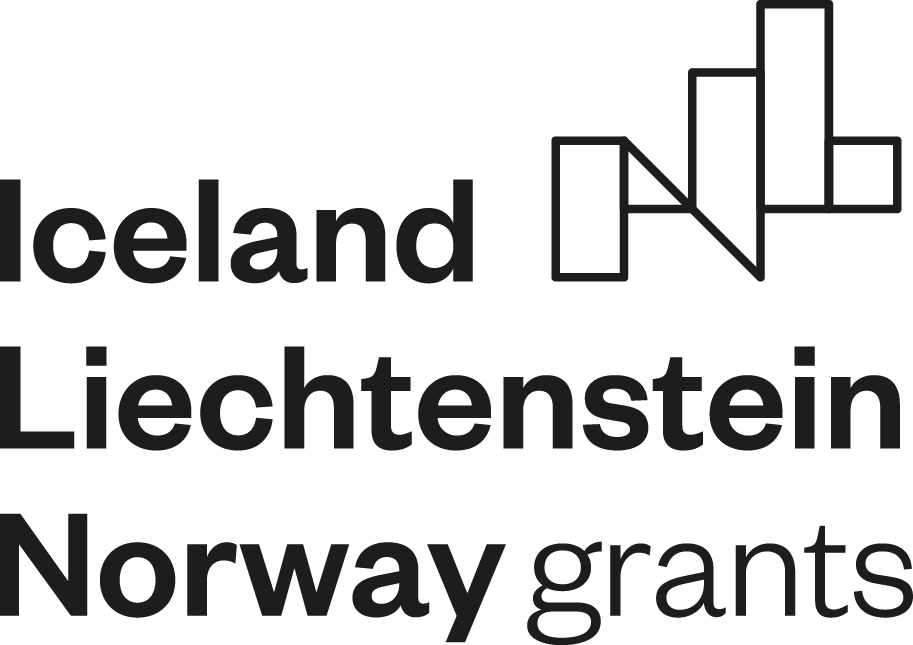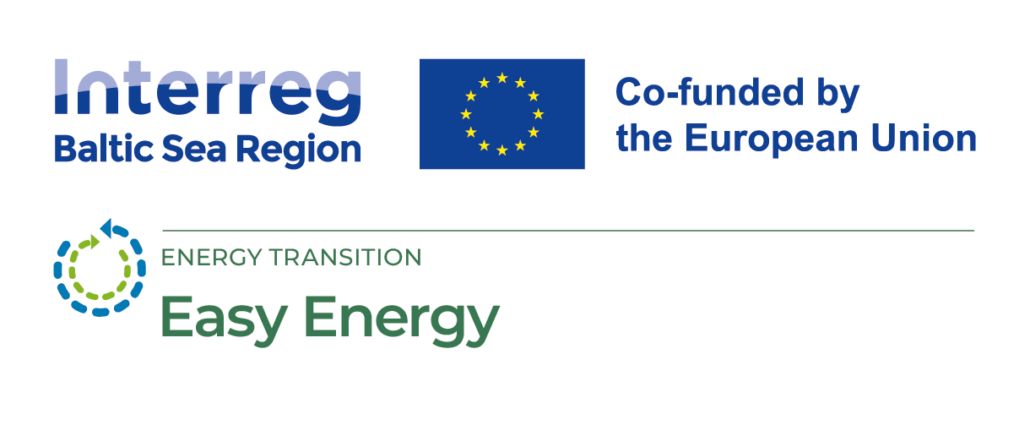Project title: Easy Energy Efficency solutions for public buildings and small companies in the BSR“
Acronym: Easy Energy
Programme: Interreg Baltic Sea Region Programme 2021-2027
Programme priority: Priority 3 “Climate-neutral societies”; Objective 3.2 – “Energy transition”
Project number: #C051.
Duration: November, 2023 – October, 2026 (36 months)
Project budget: EUR 2,168,246.40, including ERDF funding of EUR 1,734,597.12.
Partner sahare of Riga Planning Region: EUR 128,800.00, including ERDF funding of EUR 103,040.00.
Easy Energy website: https://easy-energy-bsr.eu/
Project summary
While there has been a massive increase in awareness of the need for energy efficiency, particularly in recent months, not least due to rising energy costs since the start of 2022, there is also a lack of easy-to-implement, practical solutions and basic support. Significant progress has already been made and much has been achieved in recent years, but many individuals and institutions have so far been left out of the green energy transition. They lack the financial resources to purchase and install professional systems. Most existing energy efficiency measures are aimed at financially well-off larger public institutions or companies and require substantial investments.
Smaller public facilities operated by local and regional partners, municipalities such as community centres, schools, museums, libraries, refugee care facilities, libraries and micro companies etc. are left out. These target groups are not lucrative as end customers and are hardly reached by commercial suppliers and often cannot even afford a professional energy screening. As a result, a large potential for energy savings and renewable energy production remains untapped.
Instead of conducting well-known, costly energy efficiency measures, which bring up to 30-40 % efficiency for rather few units, measures with about 5 – 15 % are to be realized for many smaller units. Reducing the threshold to implement energy efficiency measures requires a multi-pronged approach that leverages policy, technical assistance, education and awareness, and public-private partnerships that this project pursues.
This project will focus on insulation and water heating, two processes that have great potential for reducing overall energy consumption. Solutions will be tailored to this target group’s needs to support them in the green energy transition. The necessary measures must be inexpensive, easy to install without special knowledge, and simple to integrate into existing buildings. They must be easy to implement, with little or basic support. Corresponding tools will be developed, tested and disseminated. The solutions will be designed to be implemented easily (DIY) and are thus relevant to the target groups.
Supporting a fast and efficient implementation of the energy transition is a concern that drives all project partners and countries involved in this project. The level of knowledge and understanding of low-cost, easy-to-install and simple solutions in the field of building insulation and water heating differs from country to country. This has to do with different preconditions, national conditions and levels of technical knowledge. Our project consortium brings together all these differences, but also similarities. Partners can mutually benefit from each other’s experience and knowledge, so that new and innovative measures will be developed, which are then compiled in a toolkit. This ensures that the developed solutions are transnationally applicable and easy to transfer. Transnational activities will include knowledge sharing, technology transfer, collaborative development of the solutions and regional cross-border cooperation.
For the transfer of the tested solutions, it is important that as many concrete experiences and practical implementation examples as possible are collected and exchanged. A strong collaborative network between the project partners and their stakeholders will be established to ensure this. The transnational experience gained through piloting, guarantees a successful transfer of the project results.
Transnational Relevance
Supporting a fast and efficient implementation of the energy transition is a concern that drives all project partners and countries involved in this project. The level of knowledge and understanding of low-cost, easy-to-install and simple solutions in the field of building insulation and water heating differs from country to country. This has to do with different preconditions, national conditions and levels of technical knowledge. Our project consortium brings together all these differences, but also similarities. Partners can mutually benefit from each other’s experience and knowledge, so that new and innovative measures will be developed, which are then compiled in a toolkit. This ensures that the developed solutions are transnationally applicable and easy to transfer. Transnational activities will include knowledge sharing, technology transfer, collaborative development of the solutions and regional cross-border cooperation.
The transnational value of energy efficiency measures extends beyond the borders of individual countries and can contribute to a more sustainable, secure and prosperous global community:
Target Groups include:
Regional public authorities, local public authorities, business support organisations, and SMEs:
SMEs can not only support the realisation of simple solutions, but micro companies are an important, neglected group that often cannot afford high investments, but can implement them for own company
Partnership
The partnership is composed of public institutions, business support organisations and a university of applied sciences.
- PP 1 Hanse-Parlament, DE
- PP2 ZEBAU, DE
- PP3 Panevėžys Chamber of Commerce, Industry and Crafts, LT
- PP4 Panevezys district municipality, LT
- P5P Latvian Chamber of Commerce and Industry, LV
- PP6 Riga Planning Region, LV
- PP7 Estonian Chamber of Commerce and Industry, EE
- PP8 Tartu Regional Energy Agency, EE
- PP9 Otulina Podkrakowska Association, PL
- PP10 Satakunta University of Applied Sciences, FI
- PP11 Pomeranian Chamber of Handicrafts for SMEs, PL
- PP12 Vesthimmerlands Municipality, DK
Easy Energy project has received funding from the European Union’s Interreg Baltic Sea Region programme






